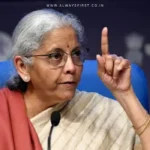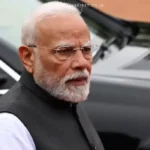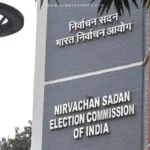
- Supreme Court refuses to hear a PIL challenging the cancellation of the UGC-NET exam due to alleged paper leak.
- Chief Justice Chandrachud suggests that affected students, not lawyers, should file such petitions.
- The plea called the government’s decision arbitrary and unjust, causing distress and resource wastage for aspirants.
Why Did the Supreme Court Refuse to Hear the PIL?
The Supreme Court on Monday declined to entertain a Public Interest Litigation (PIL) that challenged the government’s decision to cancel the UGC-NET examination due to an alleged question paper leak. A bench led by Chief Justice D Y Chandrachud, along with Justices JB Pardiwala and Manoj Misra, noted that the PIL was not filed by the students directly affected by the cancellation but by a lawyer.
Chief Justice Chandrachud addressed the lawyer who filed the PIL, advocate Ujjawal Gaur, saying, “Why are you coming? Let the students come here themselves.” This statement underlined the Court’s stance that such matters should be brought forward by those directly impacted. The dismissal of the PIL, as noted by PTI, was not based on its merits but on the appropriateness of the petitioner.
What Was the PIL About?
The PIL challenged the decision made by the Union Education Ministry and the National Testing Agency (NTA) to cancel the UGC-NET exam after reports of a question paper leak. The Ministry had ordered the cancellation on June 19 and referred the case to the Central Bureau of Investigation (CBI) for a thorough inquiry.
Advocate Gaur’s petition argued that the cancellation was arbitrary and unjust, given recent CBI findings. The plea claimed that evidence of the paper leak was allegedly doctored, which nullified the grounds for the exam’s cancellation. Furthermore, the petition requested an immediate stay on the proposed re-examination until the CBI concluded its investigation.
Impact on Students and Further Developments
The petition highlighted the distress and anxiety caused by the cancellation, as many aspirants had rigorously prepared for the examination. It also pointed out the unnecessary expenditure of resources by the students due to the abrupt decision.
In light of the Supreme Court’s refusal to hear the PIL, affected students may now need to file their own petitions to address the issue. The bench advised advocate Gaur to focus on other legal matters and leave this issue to those directly impacted.
Conclusion
The Supreme Court’s decision not to entertain the PIL against the UGC-NET exam cancellation underscores the importance of petitions being filed by those directly affected. The case highlights the broader implications of such cancellations on students, including distress and resource wastage. As the matter remains under investigation by the CBI, students who feel aggrieved may consider approaching the Court directly to seek redressal. Meanwhile, the UGC and educational authorities must ensure transparent and fair processes to maintain the integrity of crucial exams like the UGC-NET.









































Leave a Reply